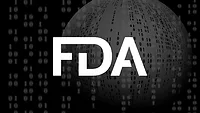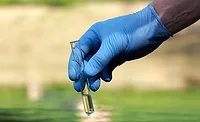FDA Provides Overview of Data Modernization Efforts, Challenges

Credit: geralt via Pixabay
On Thursday, August 4, 2022, The U.S. Food and Drug Administration’s (FDA’s) Deputy Commissioner, Janet Woodcock, Ph.D., joined the Alliance for a Stronger FDA for a webinar presentation on FDA’s data and information processing modernization efforts. Dr. Woodcock explained and provided updates on FDA’s 2019 Technology Modernization Action Plan, 2021 Data Modernization Action Plan, and 2022 Enterprise Modernization Action Plan. She also gave insight into how each of FDA’s action plans—individually and combined—contribute to better and more efficient decision-making by FDA.
Dr. Woodcock began by laying out the modernization “problem” that FDA is trying to solve. She stated that “FDA is in the business of information,” in that FDA collects, analyzes, and disseminates data that the agency uses to make regulatory decisions. However, the agency faces many barriers to its modernization and data goals, beginning with FDA’s historically fragmented approach to process development and information technology (IT) investments. According to Dr. Woodcock, many of FDA’s program-based systems are not interoperable within the agency. This has led to an absence of data standards and reliance on manual search. Dr. Woodcock also stated that much of FDA’s supporting software is nearing obsolescence.
FDA’s current approach to data management and IT comes with several consequences, Dr. Woodcock explained. The agency spends approximately $2 billion yearly on information processing. Aside from the financial burden of its outdated systems, FDA staff members’ time is wasted by conducting laborious, manual searches to find information that should be available automatically. Furthermore, FDA is experiencing poor knowledge management, difficulty conducting trend analyses, and incongruent processes across the agency. These challenges have resulted in staff not having access to information that may be critical for decision-making, reliance on incomplete data sources, and the agency not having a single “source of truth” about certain regulatory activities. Such consequences greatly affect FDA’s efficiency when executing regulatory activities such as inspections.
Dr. Woodcock also described the hurdles FDA must overcome to achieve modernization. Moving from paper to digital processes, reconciling fragmented data, investing in an overhaul of the agency’s systems, and maintaining the agency’s current systems while converting to a new system are key difficulties that FDA faces. Despite the existing challenges, FDA plans to advance an agency-wide enterprise business process, data, and IT management approach.
Dr. Woodcock’s presentation follows comments made by Frank Yiannas, FDA’s Deputy Commissioner for Food Policy and Response, at the 2022 International Association for Food Protection (IAFP) Annual Meeting, that affirm the importance of FDA's modernization efforts. The core of his message related to leveraging modern technology—especially data-informed traceability—to mitigate the public health burden of foodborne illnesses in the U.S.
Looking for quick answers on food safety topics?
Try Ask FSM, our new smart AI search tool.
Ask FSM →









